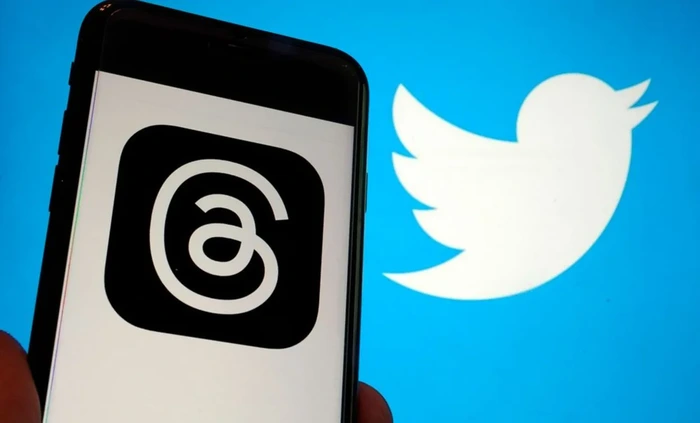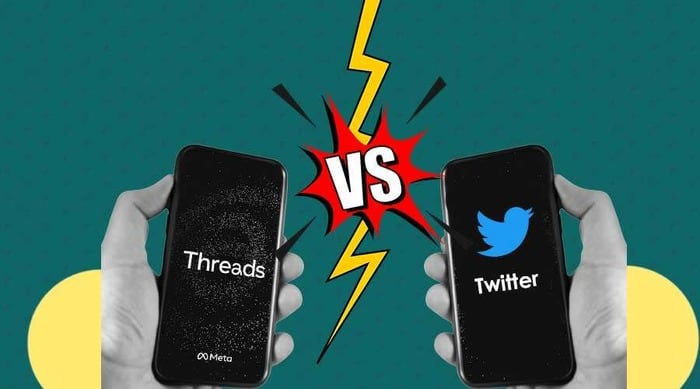Threads claims to be a Twitter killer and vows to achieve it through a unique approach – “kindness.” Mark Zuckerberg, CEO of Meta, launched the rival platform and emphasized the significance of positivity as a distinguishing factor for Threads. Despite its remarkable similarity to Twitter, Zuckerberg believes that creating a friendly and welcoming space will be instrumental in the success of this new service. However, recent interactions between Zuckerberg and mixed martial arts professionals like Isreal Adesanya and Alex Volkanovski serve as a reminder that he recently accepted Musk’s offer for a cage fight, raising questions about the amicable nature of the rivalry.
The Focus on Positivity: Meta’s Strategy to Counter Twitter’s Negativity
Mark Zuckerberg’s emphasis on positivity and kindness marks a notable departure from Twitter’s increasingly negative reputation under Musk’s ownership. Since Elon Musk took over, his controversial decisions, such as implementing job cuts and imposing viewing limits, have garnered damaging headlines and raised concerns about the platform’s overall performance.

Musk’s reinstatement of accounts belonging to controversial figures, including the misogynist influencer Andrew Tate, and his unilateral banning and subsequent reinstating of journalists have further strained relations with Twitter’s liberal user base. Rebecca McGrath, a technology analyst at Mintel, suggests that while users are typically hesitant to completely switch platforms, Musk’s actions have created a unique opportunity for Meta’s Threads. Twitter’s numerous controversies have given rise to a previously non-existent market gap, providing Threads with an ideal chance to establish itself as a formidable competitor. The platform’s focus on positivity and the current demand for an alternative further augments Threads’ potential to leave a lasting impact on the social media landscape.
Capitalizing on Twitter’s Weakness: Threads’ Opportunity to Shine
Since Elon Musk’s takeover, Twitter has faced widespread complaints from users about an overwhelming number of advertisements, particularly related to crypto and casinos with fast payouts. In addition to Twitter’s controversies, Threads must capitalize on the platform’s weaknesses to establish itself as a viable alternative. While concerns exist regarding Threads’ association with Instagram and its potential for hosting harmful content, especially concerning children’s safety, Meta’s Threads aims to position itself as the go-to platform for splashy announcements, breaking news, and engaging public conversations—areas where Twitter has traditionally thrived. The backbone of Twitter’s user base comprises high-profile users, content creators, commentators, journalists, influencers, and politicians. Meta’s success with Threads hinges on its ability to attract these influential individuals and content creators, creating a ripple effect that draws in a wider user base to embrace the platform.
Threads’ Viral Potential and User Base
Threads benefit immensely from its association with Meta’s Instagram platform, which boasts a staggering user base of over 2 billion. This massive number of Instagram users provides Threads with a strong foundation to build upon and propel its growth. In a remarkable display of viral potential, Threads surpassed 109 million sign-ups within a mere seven days of its launch, signaling its ability to attract users at an unprecedented rate. The platform leverages the existing Instagram follower base, seamlessly integrating them into the Threads app and allowing users to seamlessly transition to the new platform. This unique approach not only amplifies engagement but also encourages further sign-ups as users bring their network along.
Elon Musk asserts that under his ownership, Twitter’s user base has swelled to over 250 million, with efforts made to combat hate speech and misinformation. However, conflicting studies and varying perspectives exist regarding the efficacy of the post-takeover moderation standards. The race for user acquisition and retention in the highly competitive social media landscape continues to intensify, making Threads’ impressive viral growth and its alignment with Meta’s extensive user base critical factors in its quest to challenge Twitter’s dominance.
The Battle for Ad Revenue: Twitter’s Existential Threat
Advertising serves as the lifeblood of Twitter, generating 90% of its reported annual revenue of $5.1 billion in 2021. However, ad spending has declined due to concerns about moderation standards and a poorly executed relaunch of Twitter’s subscription product. Musk’s expectation of a significant revenue drop to $3 billion this year poses an existential threat to Twitter, burdened with a $13 billion debt and quarterly servicing costs of $300 million.
The entry of Threads into the market further intensifies the pressure on Twitter by providing advertisers with an alternative platform. While Meta’s Instagram boss, Adam Mosseri, has stated that Threads is currently not focused on incorporating advertising, this respite grants Twitter some breathing space to tackle its challenges and strategize for the future.

Comparisons with Other Rival Platforms
Threads’ emergence as a serious threat to Twitter significantly diminishes the significance of decentralized competitors like Mastodon and BlueSky. Mastodon, with its user base of around 13 million, and BlueSky, supported by Twitter co-founder Jack Dorsey, have generated interest among users. However, both platforms fall short in terms of scale when compared to Threads or Twitter. What sets Threads apart is its adoption of Mastodon’s technology, enabling users to potentially transfer their content to alternative platforms, thereby offering greater flexibility and choice. With the backing of Meta’s robust infrastructure and Mark Zuckerberg’s competitive aggression, Threads stands out as the most formidable challenger to Twitter since Elon Musk’s takeover.
Final Thoughts
Threads, Meta’s innovative platform, aims to disrupt the dominance of Twitter by prioritizing kindness and positivity. Mark Zuckerberg’s strategic focus on creating a friendly and welcoming environment sets Threads apart from its rival. Despite concerns about its association with Instagram and potential content-related challenges, Threads has a unique opportunity to leverage Twitter’s weaknesses and attract high-profile users and content creators. By harnessing the vast user base of Instagram and incorporating viral design elements, Threads has already experienced a significant surge in sign-ups. As Twitter grapples with challenges to its advertising revenue, the emergence of Threads adds further pressure. The future of the social media landscape remains uncertain, but with the backing of Meta’s robust infrastructure and Mark Zuckerberg’s competitive drive, Threads stands as the most formidable threat to Twitter since Elon Musk’s takeover, signaling a potential shift in the balance of power.